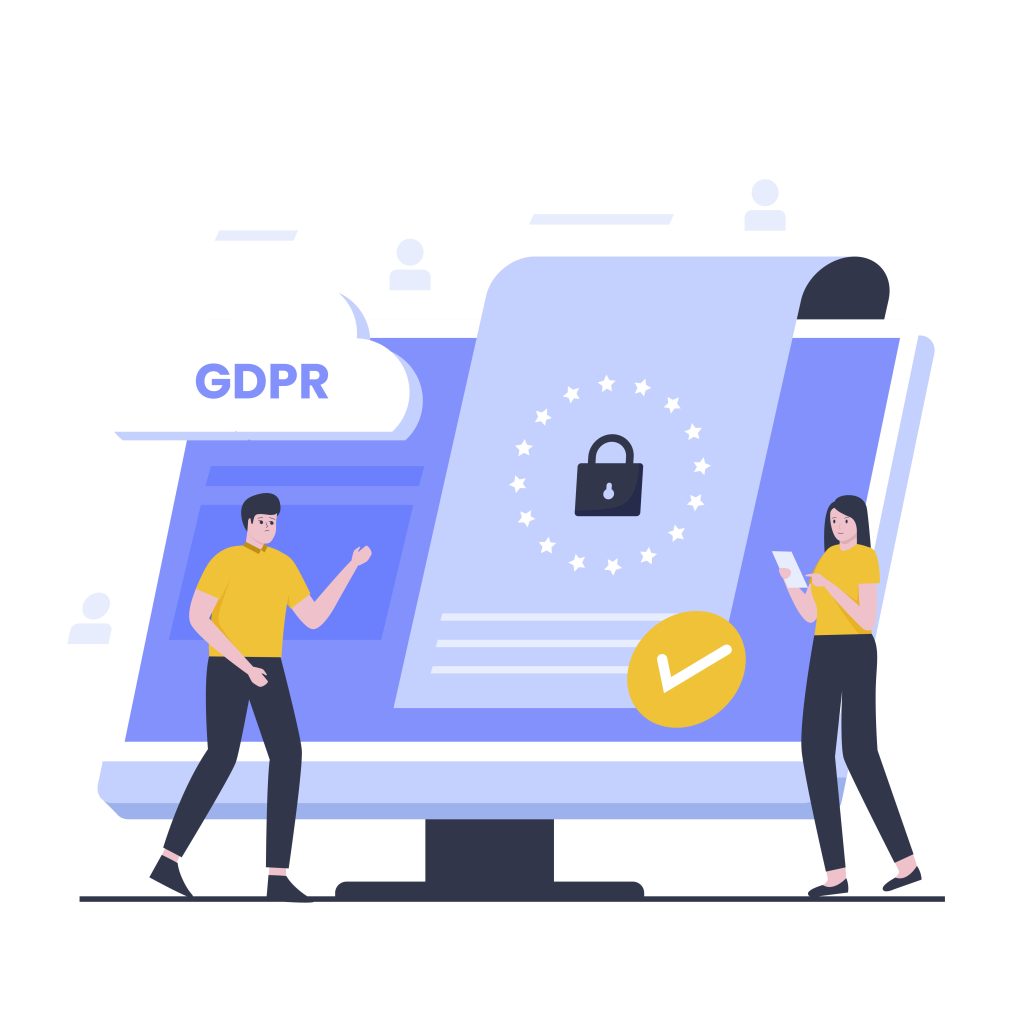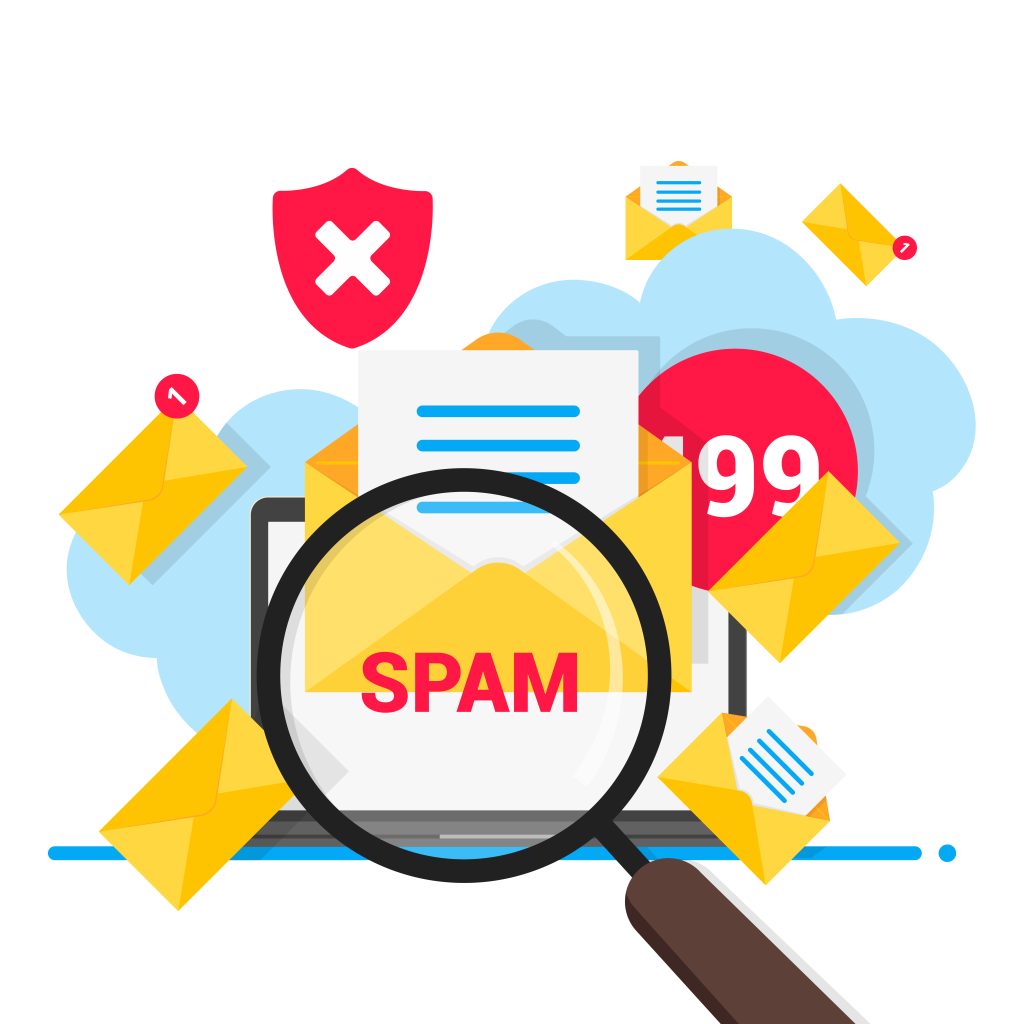In email marketing, it’s really important to follow GDPR rules to build trust with customers. Did you know that 90% of people trust companies that handle their data responsibly?
This blog aims to guide businesses through the intricate world of GDPR and its implications for automated email marketing. Since 2018, the GDPR (General Data Protection Regulation) has changed the way marketing works. It focuses on keeping people’s information private and letting them have more say over it.
Why Do We Need Regulations?
It goes beyond being a mere set of rules and represents a paradigm shift in how data is handled. GDPR mandates transparency, consent, and swift reporting of data breaches. It’s really important to know and follow the rules when using email marketing to make sure your campaigns are done right and fair. This helps make sure everything is legal and ethical.
Apart from GDPR, there’s another important rule called the CAN-SPAM Act. Businesses need to follow it when sending commercial emails to people in the United States. If businesses follow the rules of GDPR and use the right strategies, they can make sure they’re doing things right and earn trust from the people they’re trying to reach.
What is GDPR?

The primary principle of GDPR revolves around obtaining customer consent before gathering their data. In the context of email marketing, this entails acquiring explicit permission from users to send marketing emails. The user should willingly give this consent, be informed, and indicate it through clear affirmative action.
Typically, companies employ a checkbox on their websites, prompting users to express their interest in receiving marketing emails. When users choose ‘Yes,’ it means they want to get newsletters from the company. This lets the company collect their personal information in a legal way.
1. General Data Protection Regulation (GDPR)
The European Union (EU) implemented the GDPR, a comprehensive data protection regulation, in 2018. Its aim is to protect the personal data of EU citizens and give individuals greater control over how their data is collected, processed, and used. When it comes to email marketing, the GDPR imposes certain requirements that businesses must adhere to:
Lawful Basis for Processing: Businesses must have a lawful basis for processing personal data for email marketing purposes. This can mean getting the person’s agreement, doing what was promised in a contract, following the law, keeping someone safe, doing something for the public good, or pursuing fair goals.
Consent: If a business chooses to rely on consent as the lawful basis for processing personal data for email marketing, it must ensure that the consent is freely given, specific, informed, and unambiguous. The business should obtain it through clear affirmative action, and individuals should have the right to withdraw their consent at any time.
Transparency and Information: Businesses must clearly and concisely inform individuals about how they will use their personal data for email marketing purposes. This includes informing them about the purposes of the processing, the lawful basis for processing, the retention period, and their rights as data subjects.
Individual Rights: Under the GDPR, individuals possess various rights. It includes the right to access their personal data, the right to rectify inaccurate data, the right to erasure (also known as the right to be forgotten), the right to restrict processing, the right to data portability, and the right to object to processing.
Data Security: Businesses must implement appropriate technical and organizational measures. It will help to ensure the security of personal data used for email marketing. This involves safeguarding against unauthorized entry, unintentional misplacement, destruction, or harm.
2. CAN-SPAM Act:

The CAN-SPAM Act is a United States federal law that sets the rules for commercial email messages. It applies to any business or individual that sends commercial emails to recipients in the United States. Key requirements of the CAN-SPAM Act include:
Unsolicited Emails: Businesses must include contact information in any unsolicited commercial email, such as a valid physical address. The email must also provide recipients with a clear and conspicuous option to opt out of receiving further emails.
Opt-Out Mechanism: Businesses must honor opt-out requests promptly. Once a recipient opts out, the business should not send them any further commercial emails. The opt-out mechanism should remain functional for at least 30 days.
Content Requirements: Businesses are prohibited from including false or misleading header information. It includes deceptive subject lines, or sending emails from a misleading domain name in commercial emails. The email should clearly identify that it is an advertisement and provide a valid physical address.
Third-Party Responsibility: Businesses hire third-party marketers to send commercial emails on their behalf. They are still responsible for ensuring compliance with the CAN-SPAM Act.
Businesses engaged in email marketing should understand and comply with both the GDPR and the CAN-SPAM Act, depending on their target audience and the jurisdictions they operate in. Using email marketing software or service providers that offer GDPR-compliant features can help businesses streamline compliance efforts. It will also ensure that they conduct their email marketing campaigns in accordance with the applicable regulations.
Conclusion
Before initiating email marketing campaigns for your business, it is crucial to have a firm grasp of the legal regulations governing such activities. Familiarize yourself with anti-spam measures, and conduct thorough research on both GDPR and the CAN-SPAM Act to ensure compliance. If you’re uncertain about whether your subscribers wish to continue receiving emails, consider asking for their preference.
It equips you with the necessary tools for building your email list ethically and automates processes like unsubscribing and list management to guarantee compliance with requirements for campaign opt-outs.
By following the regulations and implementing appropriate measures, businesses can build trust with their audience, protect personal data, and avoid potential legal and reputational risks. Using email marketing software or service providers that offer compliance features can simplify the process. It will also help businesses ensure that their email marketing campaigns are conducted in a lawful and ethical manner.
Elevate your business towards growth with the guidance of our skilled marketing professionals. Explore our website or reach out via email at [email protected] to learn more!
All images belong to their respective owners. Please email [email protected] if removal is required.




